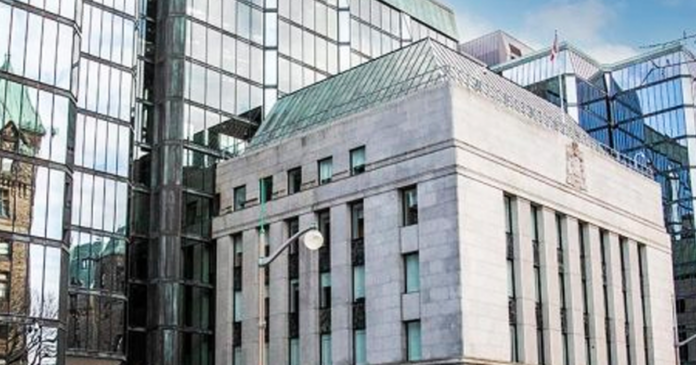Another rise in interest rates looms, with Wednesday slated as the day the Bank of Canada will throw another wrench into the finances of Canadians—especially those with variable rate mortgages.
Even as warnings about a potential recession grow louder, the central bank is nonetheless expected to announce another hefty interest rate hike, edging the bank closer to the end of one of the fastest monetary policy tightening cycles in its history.
An Ipso survey conducted for MNP Ltd., a subsidiary of the largest insolvency practice in Canada, recently indicated six of 10 Canadians are concerned about what another rise in interest rates will do to their finances, with more than half (56%) saying that as interest rates rise, they are more concerned about their ability to pay their debts, which was an inching up of two points since last quarter.
And a survey was needed for this? Really?
“It is understandable that Ontarians are more concerned about what the impact of interest rate hikes will be on their finances, as a result of the repeated rate increases so far this year,” said Caryl Newbery-Mitchell, a licensed insolvency trustee with MNP.
Newbery-Mitchell says those who are financially vulnerable and struggling to make ends meet may not be able to cut back their budgets any further if interest rates continue to rise and make their debts more unaffordable.
“Many households have already done their best to cut their budget and shave down expenses. Any future interest rate increases could push them to take on additional debt just to make ends meet. That debt can become difficult to pay off, though, because the cost of servicing that debt also balloons as interest rates rise,” explains Newbery-Mitchell. “Before that debt snowballs, individuals in that position should seek professional help.”
The Bank of Canada raised the target for its overnight rate to 3.25% in September, in line with market forecasts.
It was the fifth consecutive rate hike, pushing borrowing costs to the highest since 2008. Policymakers said interest rates will need to rise further given the outlook for inflation, with surveys suggesting that short-term inflation expectations remain high.
They also noted the global and Canadian economies are evolving broadly in line with the Bank of Canada’s July projection and that the effects of Covid-19 outbreaks, ongoing supply disruptions, and the war in Ukraine continue to dampen growth and boost prices.
Interest rates in Canada averaged 5.83% from 1990 until 2021, reaching an all time high of 16% in February of 1991 and a record low of 0.25% in April of 2009.
Approximately one in five Ontarians (23%) say they do not have a solid understanding of how interest rate increases impact their financial situation but stating that if interest rates go up much more, they will be in financial trouble.
One-third (35%) say that rising rates could drive them closer to bankruptcy. This, of course, is dire.
Last week, Finance Minister Chrystia Freeland shifted her tone on the economy from her usual praises of Canada’s strong pandemic economic recovery, warning of tough times ahead for Canadians.
“Mortgage payments will rise. Business will no longer be booming,” Freeland said. “Our unemployment rate will no longer be at its record low.”
This was close to doomsaying.
Most commercial banks expect one more interest rate hike after Wednesday before the bank hits pause on one of its most aggressive rate-hiking cycles in history.
The effect of these rate hikes is expected to be felt more broadly in the economy next year as Canadians and businesses adjust their spending.
While there is some division among economists on how severe the impending economic slowdown will be, many economists estimate the chances of a recession have grown, falling in line with the thinking of former Bank of Canada governor Mark Carney.
Recent surveys from the Bank of Canada reveal most Canadians and businesses also believe a recession is on the way.
However, many economists have highlighted that Canada’s tight labour market might serve as a buffer during an economic downturn.
In September, before Freeland threw shade on the economy, the unemployment rate was 5.2%, which is considered to be quite low considering the circumstances.
So it’s past time to buckle down.





















